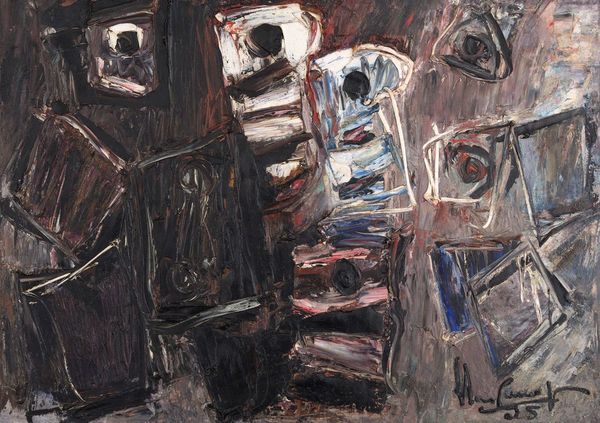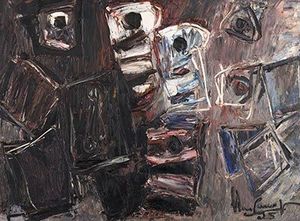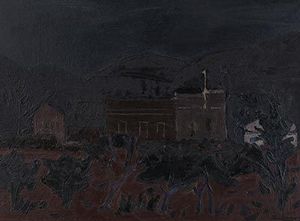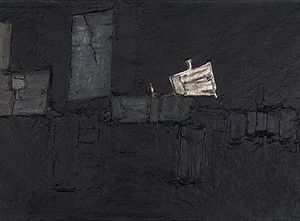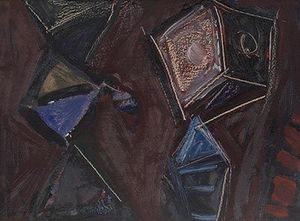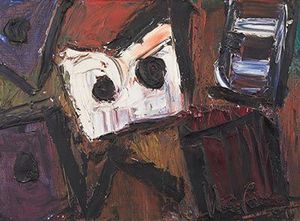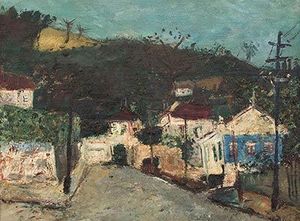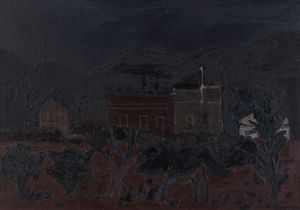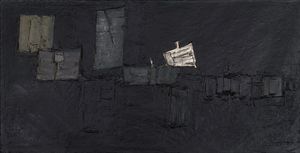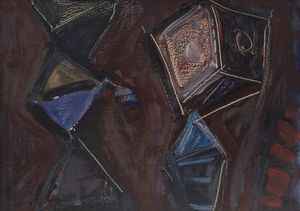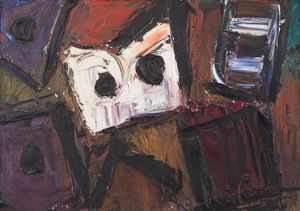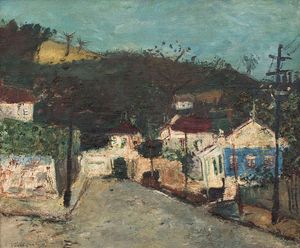Iberê Camargo's work covers fundamental aspects of modern painting in the second half of the twentieth century. In his early carrer, he produced landscapes, portraits and still lifes that reveal his reverence for the traditions of painting. In his influential series Carreteis (Bobbins), initiated in the 1950s, the object represented gained an autonomous meaning. At first, the bobbin is a fragment of the artist's childhood memory, chosen as the main character in his still lifes. With this apparently simple choice, and over at least twenty years of intense experimentation, Iberê emancipated his bobbins from the need to represent reality. With this object, the painter began to discuss issues such as form, weight, structure, balance, mobility or immobility.
It is also with the bobbins that the artist's journey towards abstraction and a unique expressionist language began. In his paintings from the 1960s and 1970s, Iberê invested in the densification and saturation of matter, gesture and expressiveness. During this period, he created sequences: Núcleos, Estruturas, Desdobramentos, Andamentos. The dense layers of paint that characterized his canvases in those years persist in Iberê's return to figuration from the 1980s onwards. Series developed in the 1980s and 1990s, such as Ciclistas, Idiotas, Fantasmagoria and Tudo te é falso e inútil make evident his affinity for expressionism, especially in the rendering of the human figure. The artist's late work deals with wandering figures, empty spaces, and fearlessly welcomes the absence of meaning. In addition to expressing a restless view of existence and the human condition, his works made a unique contribution to the development of issues in the specific field of painting and engraving.
Iberê Camargo's first contact with art took place in Porto Alegre. In 1939, he received a grant from the government of Rio Grande do Sul to study in Rio de Janeiro. Numerous critics highlight the artist's discipline in taking up the craft of painting and his respect for the great masters. Noticeable influences include the work of Guignard, De Chirico and Lhote, with whom he took classes in Rio de Janeiro in the 1940s and later in Rome and Paris between 1948 and 1950.
In the 1980s, the decade of a well-known "return to painting" - a medium Iberê never abandoned - the tragic aspect of his work gained prominence. Iberê's paintings began to be populated by absurd beings situated in sterile environments, almost non-places, marked by abandonment and unreason. This period of return to figuration was a moment of great public recognition for Iberê's poetics.
Throughout his career, Iberê Camargo took part in numerous solo exhibitions and biennials, both in Brazil and abroad. These include the 1959, 1961, 1963, 1971, 1975 and 1979 editions of the São Paulo Biennale; the 1962 Venice Biennale; and the 1961 Tokyo Biennale, among others. In 1966 he was invited to create a large panel as a gift from the Brazilian government for the inauguration of the World Health Organization headquarters in Geneva, Switzerland. In 1995, the Iberê Camargo Foundation was established in Porto Alegre, a fundamental institution for the preservation of the artist's work and legacy. His works are part of important public collections such as: MAM, São Paulo, Pinacoteca do Estado de São Paulo; MAC USP, São Paulo; MAC Niterói; MARGS, Porto Alegre; as well as major private collections in Brazil.
